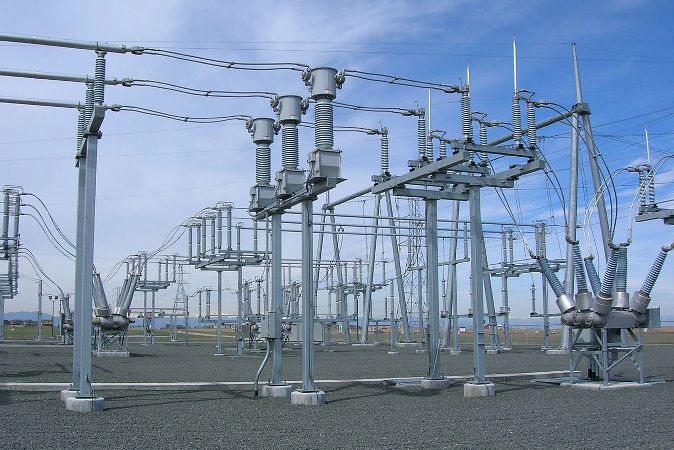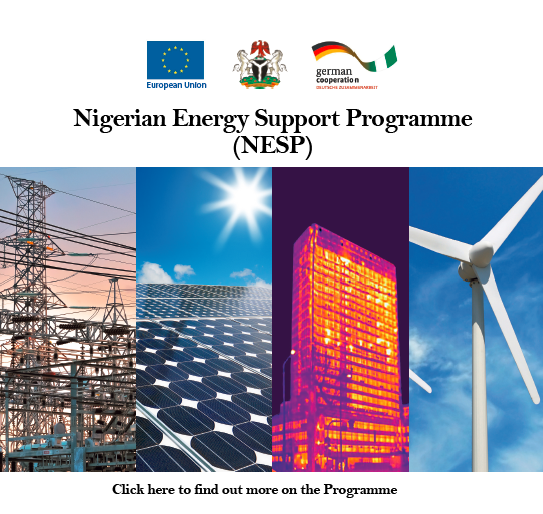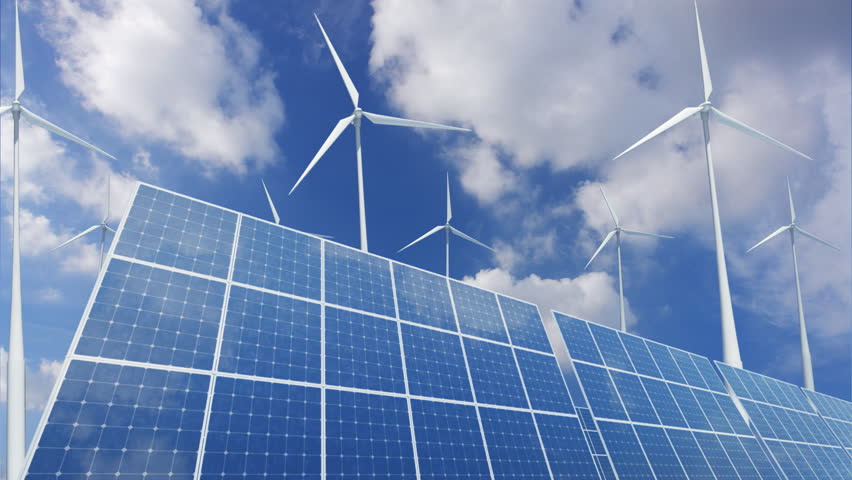The Nigerian energy landscape is difficult to understand and in some instance not transparent. A 2015 publication by the Nigerian Energy Support Programme, a collaboration between the Ministry of Power and the German technical cooperation giz, sheds light on the applicable policies and regulations and puts a special focus on renewable energy, energy efficiency and rural electrification.
As a result of this privatization, the government has also started to encourage investments in renewable energy and energy efficiency in the hope that these moves will generate opportunities for boosting Nigeria’s power sector. However, the challenges remain significant: out of an installed capacity of 13,308 MW, only about 3,000 to 4,000 MW are available due to unavailability of gas, low water levels for hydro-electric dams, grid constraints and security issues in the Delta, including attacks on gas pipelines.
The NESP study describes the energy sector, its policies and pricing structures and has a chapter on the energy market (stakeholders and roles). It explains Nigeria’s renewable potentials and how off-grid renewables can provide short-term solutions in form of mini-grids and stand-alone installations.
On-Grid Renewable Energy
The study by the Nigeria Energy Support Programme (NESP) found that there is a strong case for incorporating more renewable energy into the Nigerian energy mix, since renewables offer fast-delivery solutions and are cost-effective especially when replacing diesel generation capacity. Because these are not without challenges, a number of recommendations were made:
- Set-up a structured and reliable support mechanism such as a Bidding System for utility scale (larger than 10 MW) renewable energy and a feed-in tariff for small renewable energy projects.
- Focus efforts on development of solar photovoltaic (PV) farms and small hydropower plants for quick wins and linking the vast biomass potential to rural electrification schemes.
- Pin-point wind potential through detailed mapping and the identification of development corridors.
- Align policies between governmental institutions, thus mitigating potential conflicts.
- Support to the nation’s current electricity delivery system.
- Develop financial and investment instruments including public-private partnerships (PPPs) and promote the contribution of private banks and International Financial Institutions (IFIs).
Energy Efficiency
The study also identified that the Nigerian government and other key power sector stakeholders are now beginning to recognize the place of energy efficiency in boosting the country’s performance. This is evident in draft government policies to encourage investments in energy efficiency, particularly the National Renewable Energy and Energy Efficiency Policy 2015 (NREEEP). With these realities in mind, the study recommended the following, namely to:
- familiarize institutions with the concepts of energy efficiency and energy management, and to build capacities for policy development, implementation and monitoring
- finalise, approve and operationalise the National Energy Efficiency Policy (NEEP) including the mix of regulatory policy and public financing mechanisms in order to give a clear basis for decision making to investors
- develop financial and investment instruments adapted to each energy efficiency market segment (for example for industry/buildings: to offer incentives through savings from a better conversion rate and for the private household segment: microfinance schemes; non-bank financial institutions; bank consumer loans for appliances; leasing provisions; donor lending programmes)
- create a greater government and public awareness in two areas: the use of efficient diesel generators and in the introduction of standards and labels
- for industry to focus primarily on the establishment of an energy efficiency financing facility designed for small- and medium-sized enterprises (SMEs)
- for buildings (with a primary focus on public buildings) to develop and implement energy building codes
- for household appliances to introduce energy efficiency standards as a first priority
Off-Grid Rural Electrification
The study also identified the huge shortfall in energy access in rural areas of the country. As such, it identified the great potential for rural electrification, some of which could be achieved through renewable energy. However, owing to the size of challenges and the section of rural dwellers yet to be reached, it is evident that the government needs to be clear about investments, as this sub-sector (rural electrification) requires the highest financial outlay. It also requires strong cooperation between government, private investors and international donor agencies. To ensure significant electrification of rural Nigeria, the study recommended the following:
- to finalise, approve and operationalise the Rural Electrification Strategy and Plan (RESP) incl. the mix of regulatory policy and public financing mechanisms
- to operationalise the Rural Electrification Fund (REF)
- to strengthen institutions to ensure the delivery of the RESP targets including its monitoring and evaluation based on sound data and relevant statistical records
- for solar PV, to encourage the provision of solar packs (incl. panels and battery storage systems backed up by operation and maintenance i.e. O&M instructions) for households
- to encourage the provision of microsystem water irrigation pumps for micro-hydro schemes by first evaluating the cost/benefits of run-of-the-river micro systems and then converting micro-dams into hydropower systems
- for wind, to encourage stand-alone microsystem water irrigation pumps (backed up by instructions schemes on O&M)
- for biomass, to first assess the prospects of small bio-digesters in line with the biomass resource potential
In all, the study shows that incorporating renewable energy technologies, allowing for energy efficiency, and very importantly achieving rural electrification particularly through off-grid systems are three key areas to be taken seriously in order to improve the power situation in the country. Although reliable data proves to be a challenge, the study provides an information incentive for private investors and power project developers to initiate further actions to help meet the energy needs of Nigerians.
Attachment/Links:
Click here to view the Nigeria Energy Sector Study by the giz





